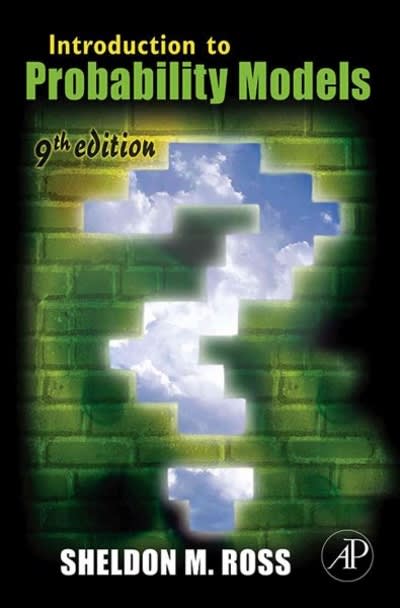75. This problem will present another proof of the ballot problem of Example 3.24. (a) Argue that...
Question:
75. This problem will present another proof of the ballot problem of Example 3.24.
(a) Argue that Pn,m = 1 − P{A and B are tied at some point}
(b) Explain why P{A receives first vote and they are eventually tied}
= P{B receives first vote and they are eventually tied}
Hint: Any outcome in which they are eventually tied with A receiving the first vote corresponds to an outcome in which they are eventually tied with B receiving the first vote. Explain this correspondence.
(c) Argue that P{eventually tied} = 2m/(n + m), and conclude that Pn,m =
(n − m)/(n + m).
Fantastic news! We've Found the answer you've been seeking!
Step by Step Answer:
Related Book For 

Question Posted:






